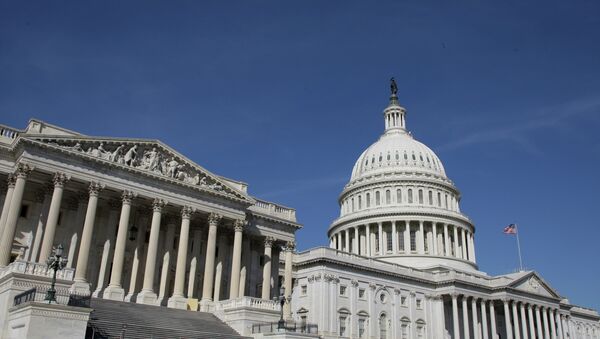So far, at least two different fundraising efforts have raised about $215,000 to purchase and disclose the browsing histories of lawmakers.
President Donald Trump will soon receive the proposed bill, called SJR34, which would allow users’ internet browsing history and data to be sold by Internet Service Providers (ISPs).
More than 3,000 people donated to a GoFundMe page by actor Misha Collins, who stars in the “Supernatural” television show. Collins’ page has a goal of $500 million and has already raised a little over $71,000.
On Tuesday, Collins wrote on Twitter, "Thanks, Congress, for voting to put all of our private data up for sale! We can’t wait to buy yours."
The campaign page reads, "Congress recently voted to strip Americans of their privacy rights by voting for SJR34, a resolution that allows Internet Service Providers to collect, and sell your sensitive data without your consent or knowledge … This GoFundMe will pay to purchase the data of Donald Trump and every Congressperson who voted for SJR34, and to make it publicly available."
Tennessee-based net neutrality and privacy activist Adam McElhaney’s GoFundMe has far surpassed its goal of $10,000, as more than 10,000 people have donated close to $165,000.
McElhaney explained on his page that not even browsing histories made in a private window are safe.
"Even if you go into an ‘incognito mode’ or ‘private mode’ from your browser, what you search for on the Internet, what sites you visit, are still recorded at the ISP level. They just aren’t kept in your browser’s history in that private mode," he said.
Through his website, searchinternethistory.com, McElhaney wants to reveal "everything" in lawmakers’ browsing history "from their medical, pornographic, to their financial and infidelity. Help me raise money to buy the histories of those who took away your right to privacy for just thousands of dollars from telephone and ISPs. Your private data will be bought and sold to marketing companies, law enforcement."
Critics have said that while activists’ hearts may be in the right place, they’re moving from a place of misunderstanding.
"To be clear, you can’t do this," wrote Russell Brandom in a Wednesday article for The Verge. "Just because carriers are allowed to market against data doesn’t mean they’re allowed to sell individual web histories. The campaigns seem well-intentioned, but that’s just not how it works."
Brandom points out that sharing "individually identifiable" information is already illegal under the the Telecommunications Act. Therefore purchasing the data of politicians would be impossible.
The writer acknowledges that internet privacy is a serious issue, and that access to "aggregate" data could still be an issue, but says if the proposed bill falls through, "It’s anyone’s guess where the money will end up."
Misha Collins wrote on his campaign page that if the goal isn’t met, all donated funds will be given to the ACLU.





